Last updated on 18th June 2024
Having a startup is exciting, but it can also be scary. The data is stacked against you.
One of the most effective ways to keep your business on track is to be diligent about project management.
Project management reduces time wasted on errors (and re-work caused by those errors), and as a result improves your team’s productivity and your company’s profitability.
On top of that, when projects are managed efficiently, communication is improved – both internally and externally – meaning clients are happier and will hopefully use your business time and time again.
So the benefits are clear, but how do you get started with project management?
Here are 5 simple steps to build successful startup project management.
1. Setting goals
It’s likely that you have a lot you want to achieve, and fast.
When you’re starting a business there are so many moving parts – from contacting investors, to opening a company bank account, to scouting for a location.
One of the most simple ways to manage all of these goals would be to create a to-do list.
At Project.co, we have a free to-do list template that makes it easy to start managing your tasks on your devices (Project.co works on any device. You can use it on the web or download our app – for desktop and mobile).
The template comes pre-populated with a few tasks to help you get started, but it’s easy to update these and add your own.
You can view your tasks as a standard list:
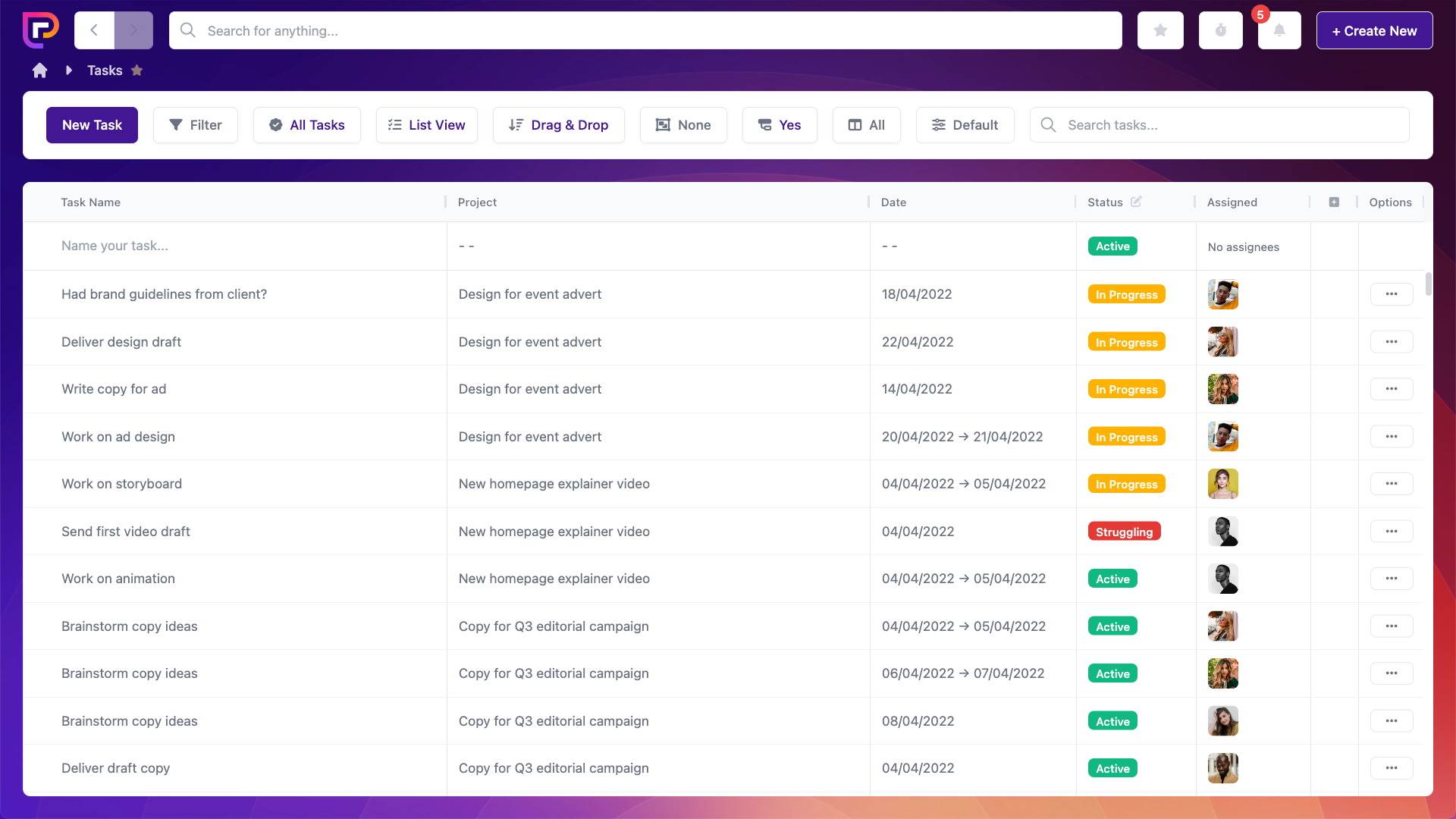
Or with the calendar view, so that you have a better idea of when you need to complete each task:
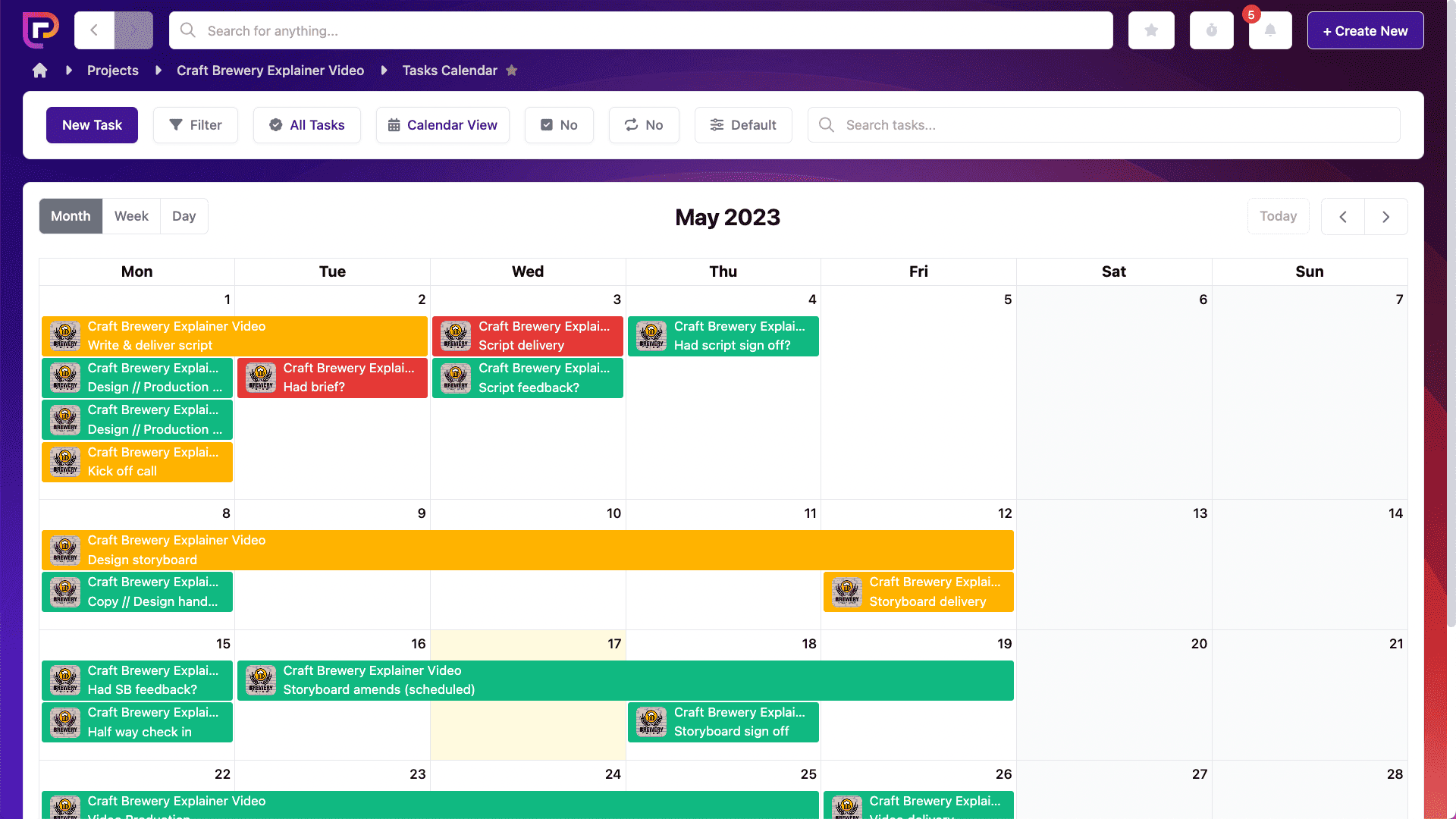
Tasks can be dragged over a couple of days or moved on if you need more time.
Within each task you can add notes and other important information, such as files or documents:
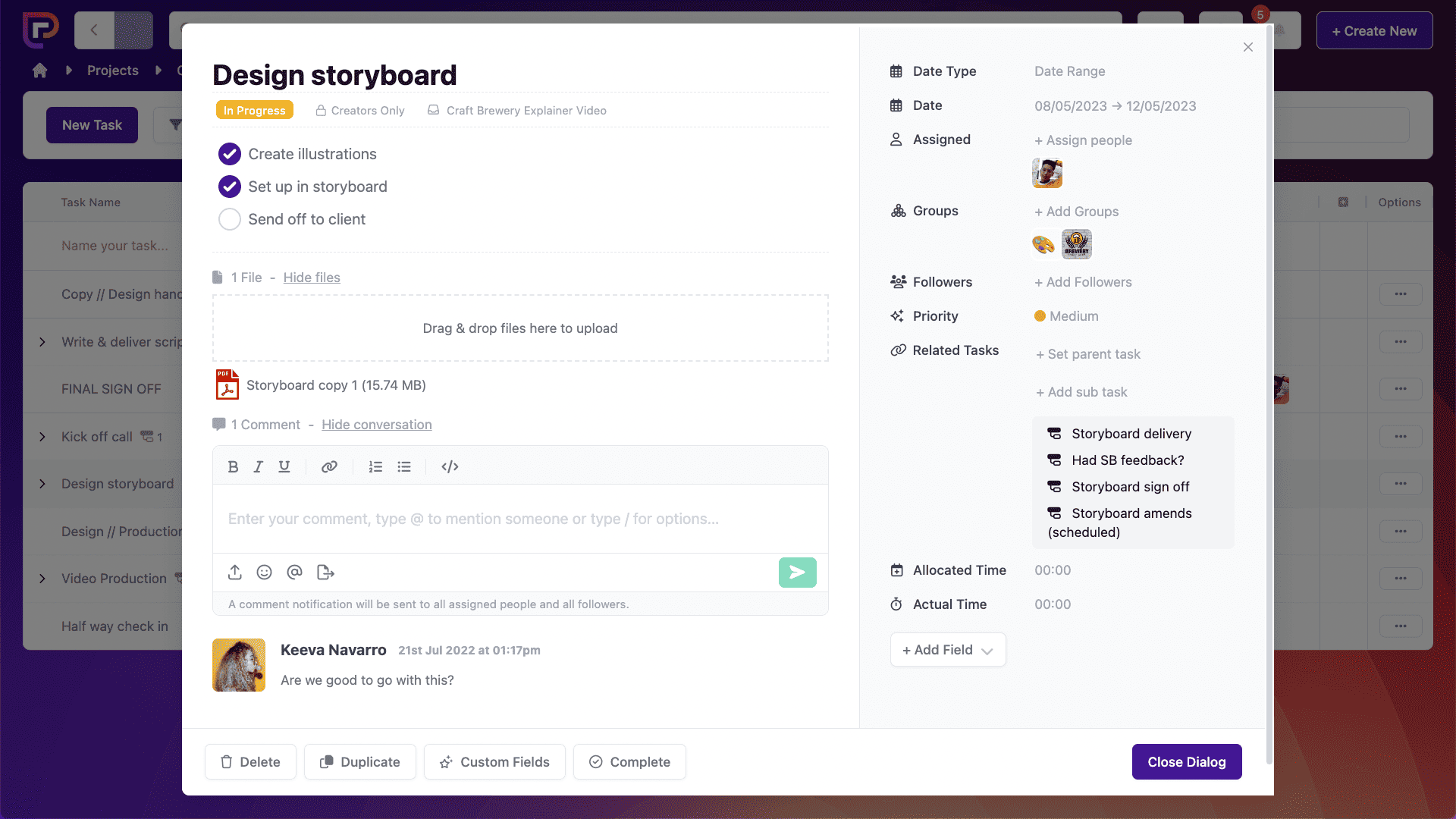
And whenever you complete a task, just check it off!
2. Finding a team
Finding and building the perfect team of employees is an important first step towards building the wider company culture of your startup.
While looking at past experience and skill set is essential, when hiring your early team it’s also crucial to look at an employee’s potential future as well as their past.
According to Anna Stenberg, founder of executive recruitment agency, WES, when hiring for your startup you should:
You should consider this – in addition to the type of company culture you want to create – when attracting your ideal candidates.
In order to assemble the perfect team, you’ll need a strong recruitment and onboarding process, and project management can help with this.
Our free recruitment pipeline template gives you everything you need to get started, including a tasks section, where you can schedule interviews. The Kanban view also makes it easy to move candidates along the recruitment pipeline.

There’s also a files section, for storing CVs and other relevant documents. Plus, a chat space, where you can discuss potential candidates with other decision makers.

When the hiring process is complete, we also have an onboarding template that will help your new employees to settle in.
There’s no limit to the number of projects you can create within Project.co, so you can open a new onboarding project for each new team member.
Here, they can work their way through the onboarding process – from watching training videos to working on their first project – ticking off tasks along the way.
3. Managing budget
In those early days of building your business, every penny counts.
It’s important that you know exactly how much money your business needs to stay afloat, and how much everything is going to cost.
In the beginning, your outgoing costs are probably going to outweigh your revenue. However, you should have a plan in place that enables you to track when you can expect to start making a profit.
Project management can help with this by allowing you to track the time spent on your projects. When you know how much time you’ve spent on each task or project, it can help you calculate your profit.
Each project within Project.co has a time tab that you can use to input the allocated hours you expect to spend on any given project, and then the actual hours spent.
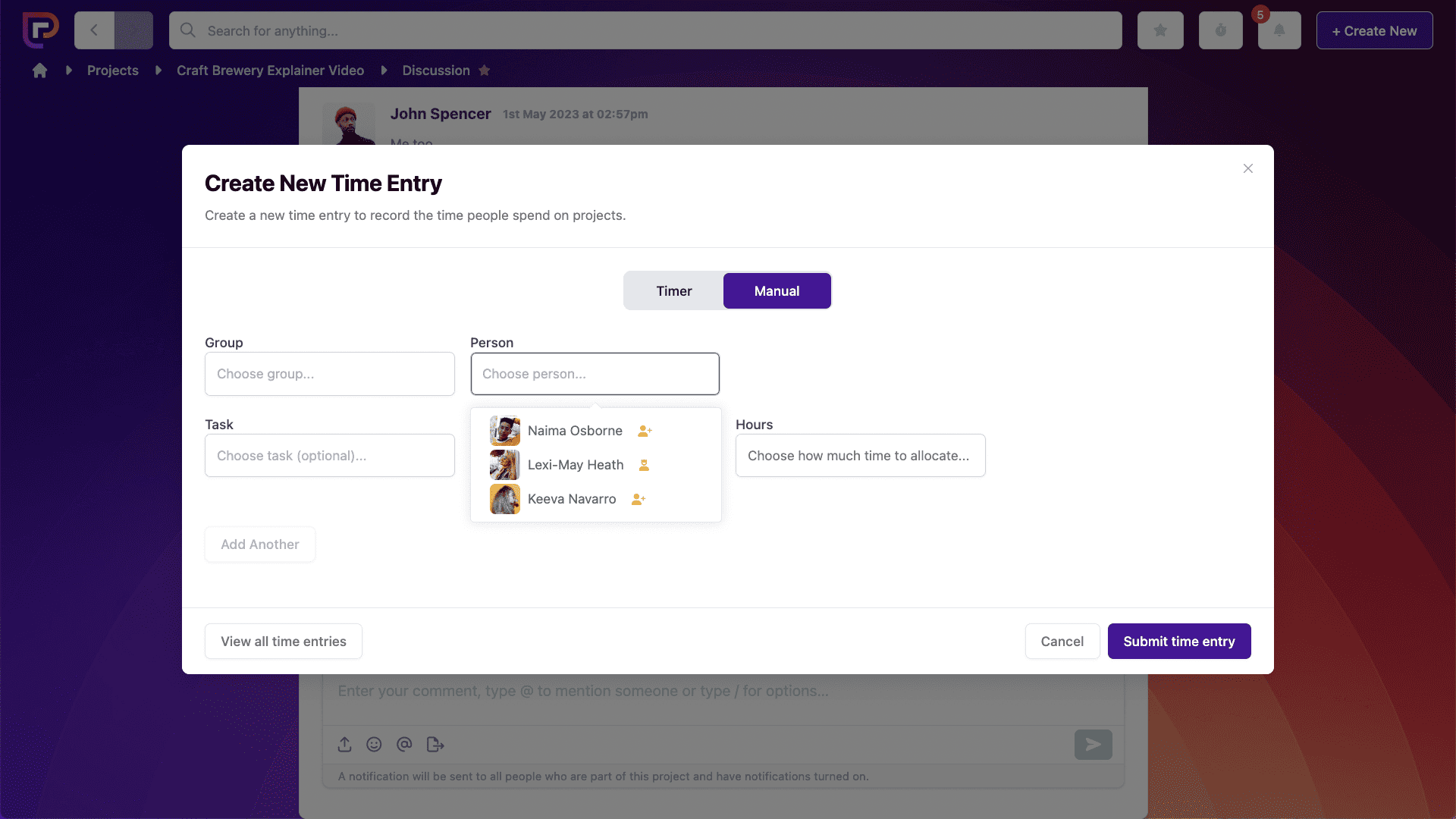
This is a great way of measuring your profitability at a glance. If the actual time spent was less than the allocated hours – perfect! If not, it’s time to evaluate what went wrong.
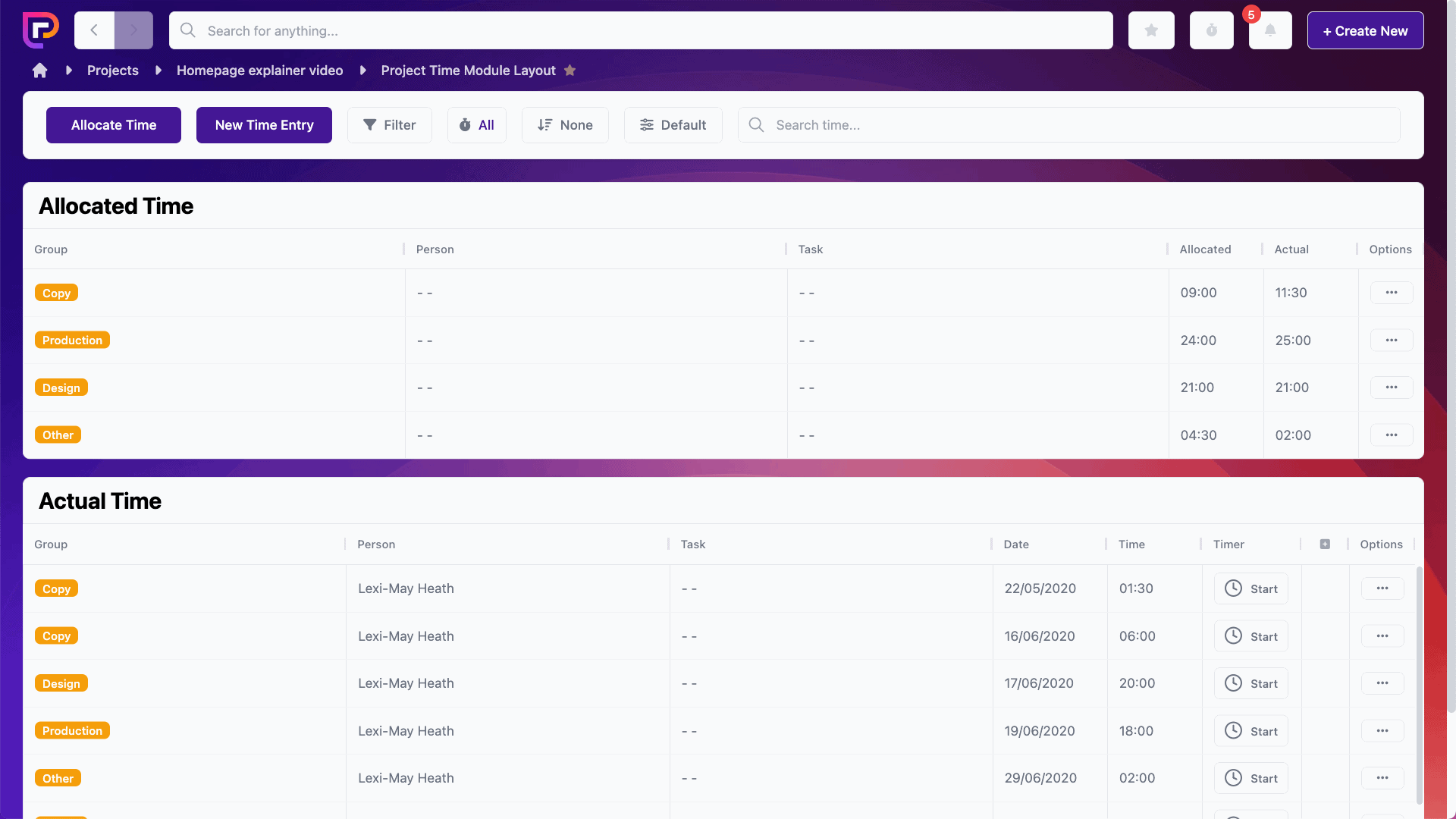
By keeping a close eye on your budget you’ll be able to make informed decisions on important things such as, when to hire more staff, when to work on new products or features, and how much you can afford to spend on marketing and promotion.
4. Prioritising communication
Open and transparent communication is key to the success of any startup.
After all, you’re bringing together lots of people with different personalities and interests, and asking them to work together to build on the success of the business.
And the constant need to “make it work” in order to keep the business afloat isn’t just stressful for you (the boss), it’s also stressful for your team – who may have families to provide for or mortgages to pay for.
This starts with deciding on what your preferred channels of communication will be. According to our 2024 Communication Statistics, 55% of businesses communicate with their clients by email – making it the most widely used communication channel.
But email isn’t ideal for many reasons. For starters, inboxes can get crowded real quick – and it can be difficult to find critical information when you need it.
In addition, email communication is siloed. This is fine for the most part, but can become an issue if someone is out-of-the-office unexpectedly and has important information locked away in their inbox.
A project management tool, like Project.co, can help you to keep all of your team communication in one central place – accessible by everyone, anytime.
Our discussions tool offers a place where everyone involved in the project can chat, share ideas, and also share important files.

All messages are time-stamped and dated, making them easily searchable. And, by switching on email notifications, everyone involved in the project can receive every message directly to their inbox.
Not only is this ideal for internal communication, it can also be used externally with your clients.
You can invite clients to projects using the people tool:
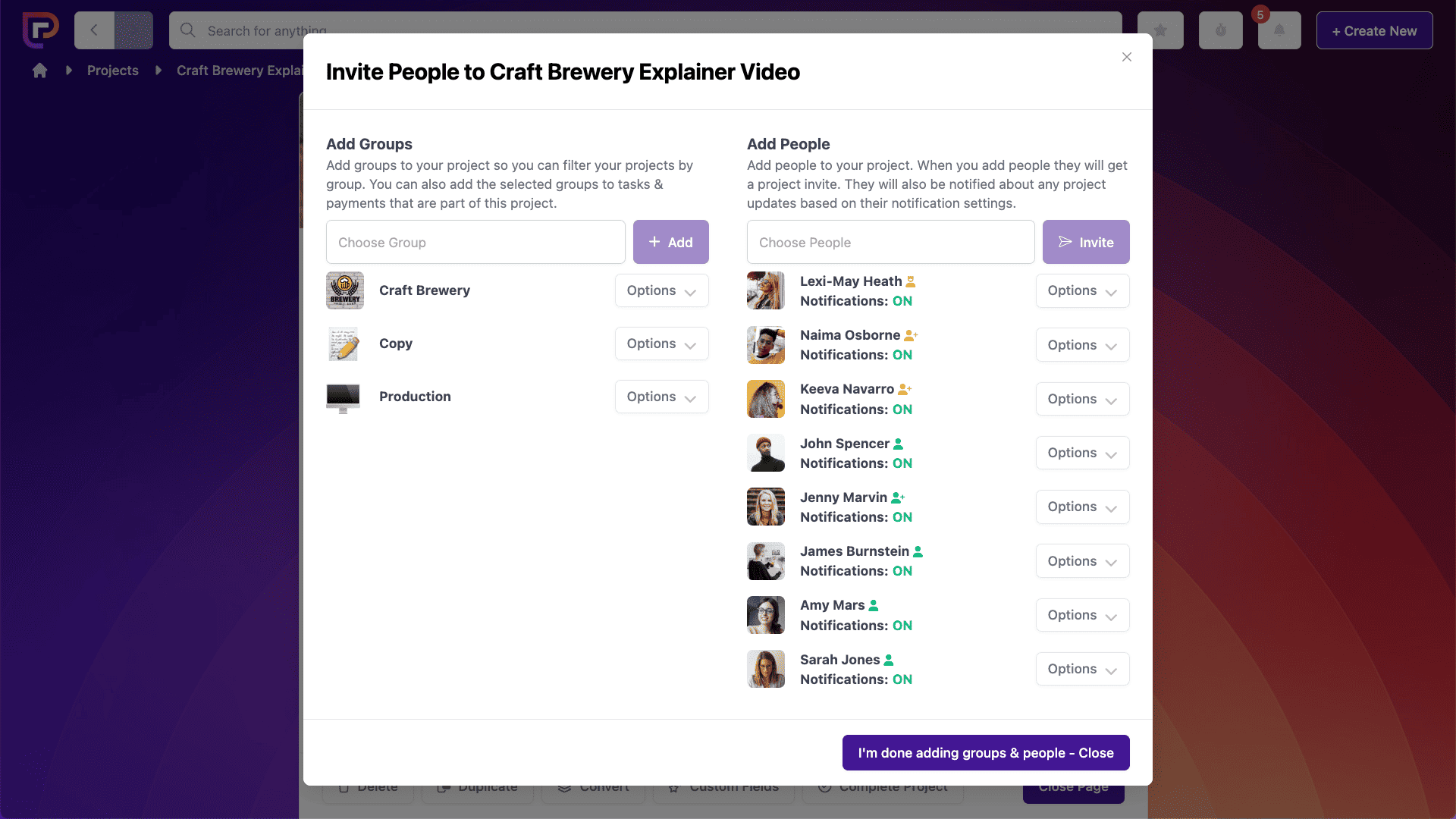
From there, they’ll have access to the discussions tab where you can keep all project communication centralised.
This results in increased transparency, no more missed messages, and improved customer satisfaction!
5. Creating a standard
As the excitement of starting up begins to even out into the normal humdrum of everyday business life, you’ll need to ensure that the way you manage your projects is scalable.
This way, you can continue managing everything efficiently as you grow.
A project management tool can help you to do this because they’re already built with scalability in mind. With Project.co, you can manage your projects in the same way with one person as with 100+ people on your team.
Plus, you can create unlimited projects for every use case – from your own personal to-do list to a complete product roadmap.
And every project is customisable and able to adapt to the unique business requirements of your startup!
Final thoughts
Starting your own business is tough, but it’s also incredibly rewarding. Those long hours you put in. The late nights. The blood. The sweat. The tears.
All of it will be worth it, but it doesn’t have to be so difficult. A project management tool can make your life so much more organised, and so much easier!



